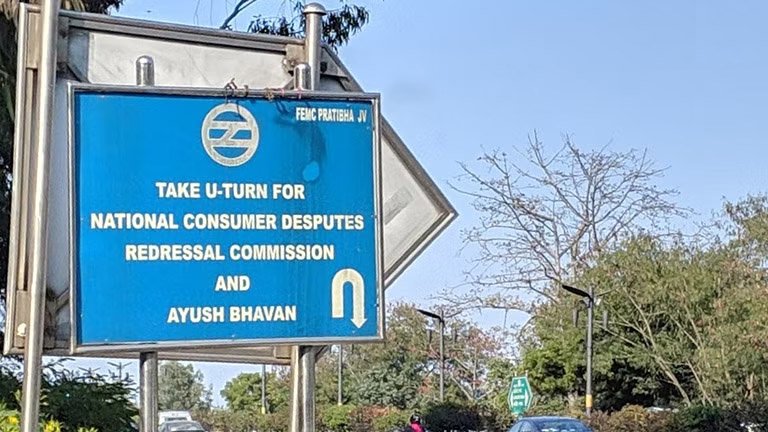Published on :
New Delhi: The National Consumer Disputes Redressal Commission (NCDRC) held on Friday that a higher duty of care is expected from Intensive Care Unit (ICU) staff when a patient was critical [Medical Superintendent, Mata Chanan Devi Hospital v Sunita Saxena].
Presiding Member Dr SM Kanitkar upheld an order of the State Commission which directed the opposite party (OP) – hospital to pay ₹10 lahks as compensation to the patient with an interest at the rate of 9 per cent per annum.
Additionally, a copy of the order was sent to the Medical Council of India to initiate action against the doctors accused of negligence.
The commission held that the patient’s hands being tied all night led to the development of gangrene which went unnoticed by the staff resulting in a failure of duty of care.
“On bare reading of the findings of Apollo Hospital, the inference can be drawn that the gangrene was developed due to tight tying of the hands gangrene in whole night on 29.04.2001. It went unnoticed and unmonitored throughout the night by the ICU staff, it amounts to failure of duty of care. The higher duty of care was expected from the ICU staff as such the instant patient was critical.”
In a nutshell, the patient claimed medical negligence after her treatment at the hospital led to amputation of her fingers on the left hand due to gangrene. This was caused from her hands being tied with a bandage to the fence of the bed to avoid pulling the urinary tube.
Her hands were allegedly tied to the bed from 2 pm till early next morning, which led to swelling, impaired circulation and subsequent gangrene.
She was shifted to Apollo Hospital since there were no signs of improvement. At Apollo Hospital, she was recorded to have been admitted with gangrene of the left hand up to the left wrist possibly as a result of long-term compression of blood flow.
Eventually, her fingers were amputated. As per a disability certificate issued by the Safdarjung Hospital, she had a permanent disability at 55 per cent.
The OP – hospital submitted that the patient came to the hospital in a very critical stage and stayed there for less than 24 hours, without giving a reasonable time for the treatment.
The patient’s husband, however, informed the NCDRC that at the time of discharge, the doctors at the OP-hospital did not disclose that the patient had gangrene due to her hands being tied.
Further, even the Medical Superintendent was reluctant to allow the patient to go to Apollo Hospital as it would expose their wrong treatment and gross negligence. The commission recorded that this was not rebutted by the OP hospital.
In fact, it was found that the doctors did not issue a discharge summary or cerificate, which is a deficiency on the part of the OP hospital.
The NCDRC thus concluded that the evidence regarding tying of the patient’s hands could not be brushed aside and the onus was on the OP to explain the cause of gangrene, which it failed to do.
“Based on the discussion above, I find there was failure of duty of care from the ICU staff in the OP hospital. The Order of the State Commission is reasoned and awarded just and adequate compensation to the Complainant. I do not find any reason to enhance the compensation.”
Advocate SC Buttan appeared for the hospital while the complainant was represented by Advocate Aditya Goel.



